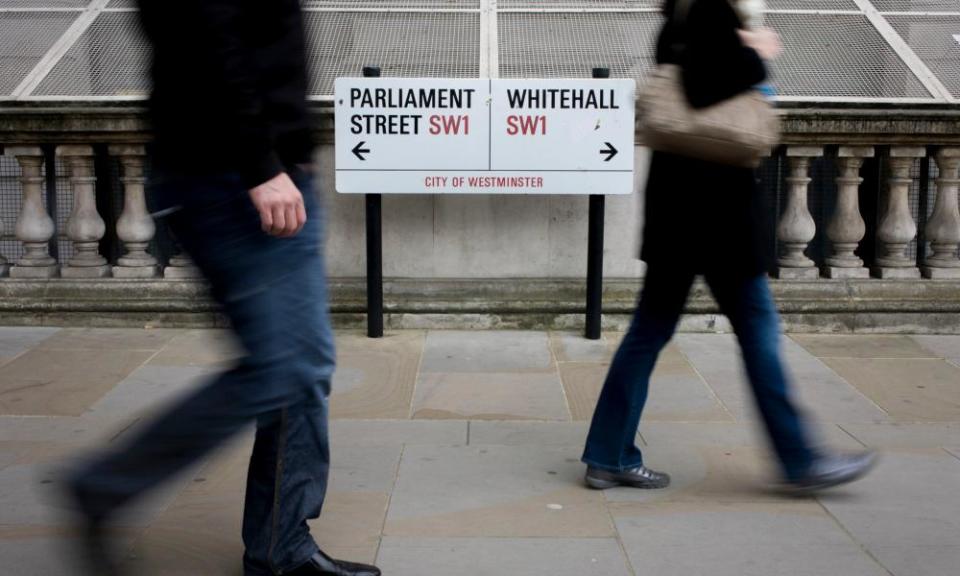Stressed Whitehall staff at ‘breaking point’ over Brexit

Rates of work-related stress, depression and anxiety among civil servants has risen drastically in the past year to the highest level for decades, amid warnings that Whitehall will reach “breaking point”.
The proportion of civil servants who say they are experiencing stress has increased by 45%, according to official data. Increasing workloads, looming deadlines, departures of senior staff and the pressures around delivering Brexit are all being blamed for the spike.
It appears to be the highest rate recorded for any industry since the Health and Safety Executive began collecting these statistics 20 years ago. About 3,230 cases of stress, depression and anxiety per 100,000 workers were recorded for the sector and related jobs, the highest rate of any sector in the UK and around 77% higher than the all-industry average.
Unions blamed the figures on increasing workloads, years of pay restraint and the added pressures created by Brexit and political gridlock. Mike Clancy, general secretary of the Prospect union, said: “No other industry has experienced anything like this annual jump, and it is impossible to escape the conclusion that it is because of the sheer level of pressure being heaped on civil servants as a result of Brexit.
“No government in peace time has ever been as reliant on its civil service, keeping the country running and preparing for Brexit, while parliament remains effectively deadlocked. Pay is still lagging behind the private sector, departmental cuts continue to bite, and senior politicians never seem to miss an opportunity to attack civil servants – it’s no wonder they are feeling the strain.
'The government urgently needs to address this problem or it will soon discover that even our fantastic civil service has a breaking point.”
The public sector pay cap has been key. People do not feel valued. Pay is going down and they are being asked to do more.
Former government employee
Emma Norris, research director of the Institute for Government thinktank, said she believed the uncertainty and difficulty of Brexit, as well as a high turnover of senior staff, was having an impact. “Some of this is the sheer workload that the civil service has been subjected to under Brexit,” she said. “We know that, as a result, some departments have already moved to shift work to try to reduce the hours some people are working – particularly where tight deadlines are involved.
“The phrase we have heard is ‘the fog of the fortnight ahead’ – a constant sense that it is hard to see beyond two weeks or so, with a constant cycle of uncertainty. That can certainly be demoralising and stressful. High turnover is always a big problem in Whitehall. Naturally that is going to have consequences for staff morale.”
She said public bodies were taking action. The Department for Environment, Food & Rural Affairs recently made counsellors available for its staff, while others are holding lunchtime sessions on managing intensive workloads and wellbeing.
One employee at a government body, who worked as a mental health champion after suffering depression, said he changed jobs to help him deal with his condition. Speaking anonymously, he said that, while mental health awareness was improving, growing workloads could be to blame for the growing number of cases. “The organisation is making the right noises, but there is a heck of a lot more to do,” he said.
“Quite a few public sector bodies sign up to mental health pledges as a box-ticking exercise, or to give them the kudos of trying to do something. The public-sector pay cap has been key. People do not feel valued. Their pay packets are going down in real terms and they are being asked to do more for less. When someone leaves, instead of that role being filled, people are being asked to take up that work.”

 Yahoo News
Yahoo News 